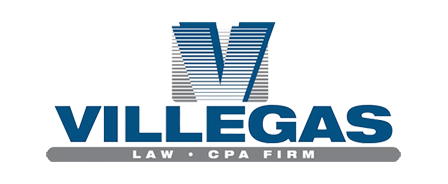Estate Law Attorney Near Me

Probate is the process of recognizing a person’s death and winding up their property.
The process can be simple or complicated, depending on the size of the estate and its complexity.
But, many people who are not lawyers can easily become overwhelmed by the process and require expert help. Below is a overview of the Texas probate procedure.

Identify the Estate
A individual’s estate is made up of everything they possessed in the time they died. This may include:
- Real estate
- Cash
- Personal property, such as vehicles, boats, art, jewelry, publications, etc..
- Retirement balances
- Life insurance policies
- Investment securities such as stocks and bonds
Texas probate law demands that all estate assets are gathered and the deceased individual’s residual debts get paid out of these assets. Just after all debts have been paid will the property’s assets be distributed according to a will or, if there is no will, based on Texas intestate succession legislation.
Some estate resources do not pass through the probate process. For example, any life insurance policy or retirement account with a named beneficiary will pass into the beneficiary beyond probate. The beneficiary should contact the company which issued the policy to talk about.
Additionally, any property held in joint tenancy with right of survivorship or community property with right of survivorship doesn’t pass through probate, either. Rather, the deceased individual’s interest in the property vanishes at death, leaving the joint owner that the proprietor.
If the deceased created a hope, then trust resources are not part of the property, either. The trustee named in the trust will distribute assets to beneficiaries.
Starting the Probate Procedure – Passing with a Will at Texas
Probating a will in Texas begins with somebody filing an application with the probate court. Texas probate law requires that the program contain information, including the identities of heirs, and the date of departure, the deceased’s address. You also submit a copy of the will. A notice will be posted by the county clerk in the waiver informing the public that someone has registered an application for probate. After a delay, you can have a hearing before the probate judge.
In the hearing, the judge will decide whether the person named executor in the will probably be qualified to function. This individual is responsible for paying debts, protecting property, gathering all estate assets, and distributing assets. Then the judge will need to appoint someone to serve as the executor if the deceased did not have a will. Probate courts require that executors have an attorney representing them because a duty is owed by an executor to heirs and all beneficiaries. It is an superb idea, even if this is not a court condition.
The probate judge should also determine the validity of the will. Texas probate law requires that will meet certain actions, and the judge will refuse a will if it is deficient. In case the will is admitted by the judge into probate, then the executor will be issued Letters Testamentary, which the executor requires when winding up the financial issues of the deceased.
Collecting Property
The executor should recognize property property, which is time-consuming. Establish all accounts and the executor will need to go through their papers and determine whether the cash that is deceased was owed by a person. The executor should safeguard all property so it doesn’t become damaged or that no one steals it.
After the executor has accumulated all property, he or she must file an inventory of all assets with the probate court. The executor has 90 days from the date of appointment to offer this inventory. Some resources might also need to be assessed, such as jewelry, land, etc.. A fantastic rule of thumb is that whatever you wouldn’t sell at a garage sale must be appraised.
Paying Creditors
Most people have some invoices, no matter how small–utility bills, credit cards, cell phone charges, etc.. All these have to be repaid with assets. However sums are owed by the dead person to individuals. Because lenders are eligible for payment, you need to notify them of their passing. Your attorney will file a Notice to Creditors, which provide their attorney’s address and will determine the executor. It should also offer lenders with a deadline for filing a claim with the estate for payment. This notice is published in a newspaper.
Not all creditors are treated equally. Rather, they are classified by Texas probate law into different classes. By way of example, the legal fees for any attorney the executor retains will be paid. This makes sure that executors have capable legal representation throughout the probate process.
When the estate has enough cash, then paying creditors is normally simple. But if the invoices are large and there is not enough money, then the executor will have to sell estate assets to make the capital necessary to cover invoices. Because a beneficiary might be waiting to inherit the exact item you 16, selling resources is catchy. A attorney is definitely helpful at discovering while treating all beneficiaries which resources to market.
Court Supervision
When the deceased had a will, then most executors will be appointed as an Independent Executor. This usually means that they don’t need the court’s permission before taking measures, such as paying creditors or selling estate assets. They do not have to post a bond. An management should be less expensive and simpler.
Conversely, when someone dies without a will then the Texas probate process is”dependent,” meaning supervised by the court. The executor will require permission before taking any step into the probate procedure. Helpfully, Texas probate law department 145 permits the court if all heirs agree, to create an administration.
Probate Disputes
Disputes can crop up in the probate procedure. There could be a dispute about who should serve as executor. Family members might believe the person isn’t fit to serve, thus people struggle over who can function in this capacity, or the deceased may not have left a will.
Occasionally, disputes arise over whether a will is authentic or whether the will represents the deceased person’s wishes. The will might be challenged by someone for an assortment of reasons, like the deceased lacked the mental capacity to make the will when drafting the will or else they have been defrauded. A judge will have to listen to testimony and review evidence. When a will is put aside effect might be taken by a prior will, or the estate may have to be distributed based on the intestate succession laws of the state.
Distributing Assets
The last step in the probate process if for the executor to distribute the assets according to the will. The executor must coordinate with all the beneficiaries to ascertain how they are going to take the assets.
In some situations, an executor will sell assets so that the beneficiaries get cash. The executor will need to organize these earnings. Depending on the assets sold, national and state taxation, which the executor must pay might be owed by the estate.
Talk with an El Paso Estate Law Attorney
This is a general summary of the probate process. Probating a will can be a complex process, and executors must discharge their responsibilities with a high level of fairness and accuracy. Executors find they need help when probating a will. Please contact an experienced probate attorney at Villegas Law Firm today.

